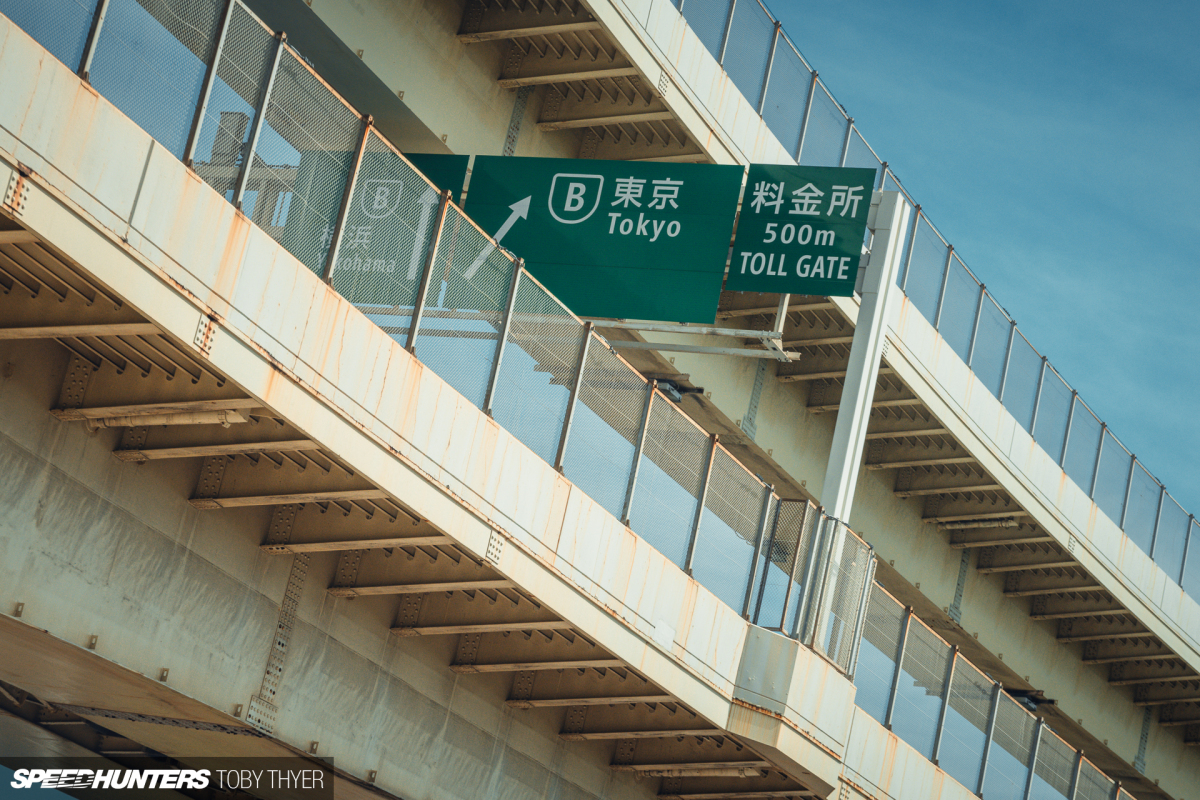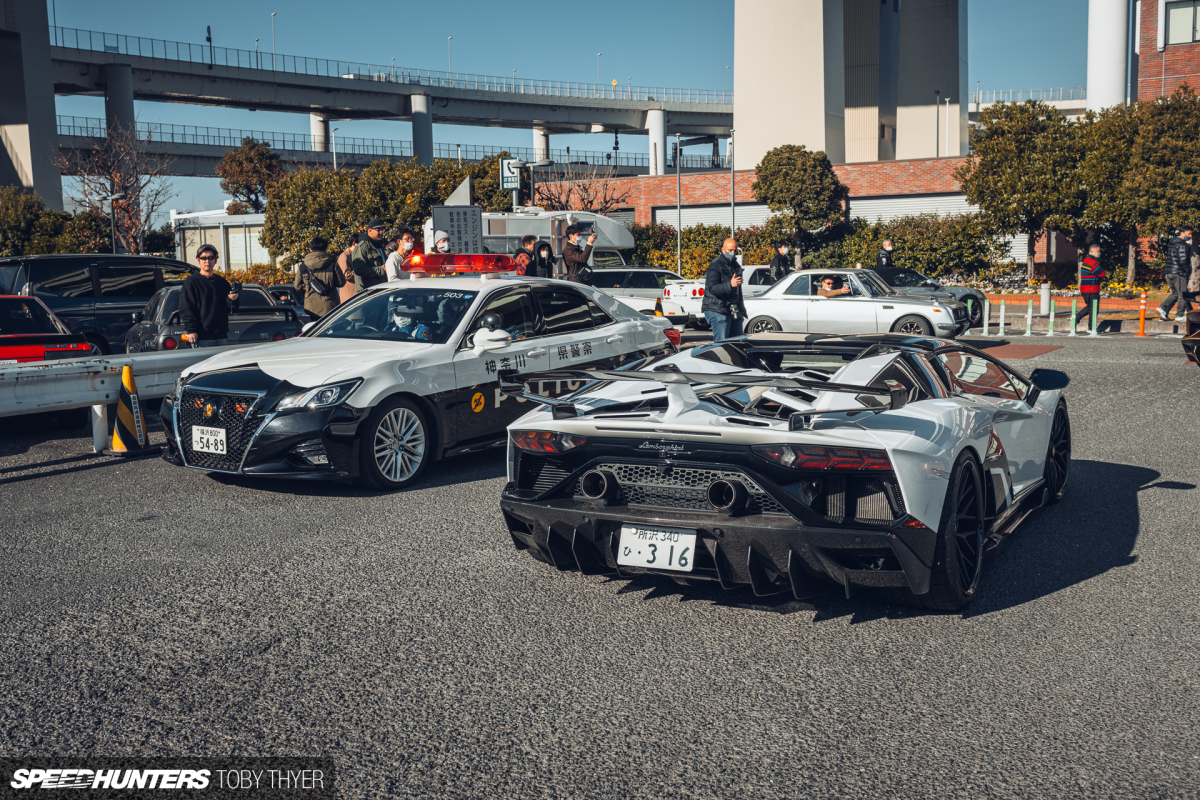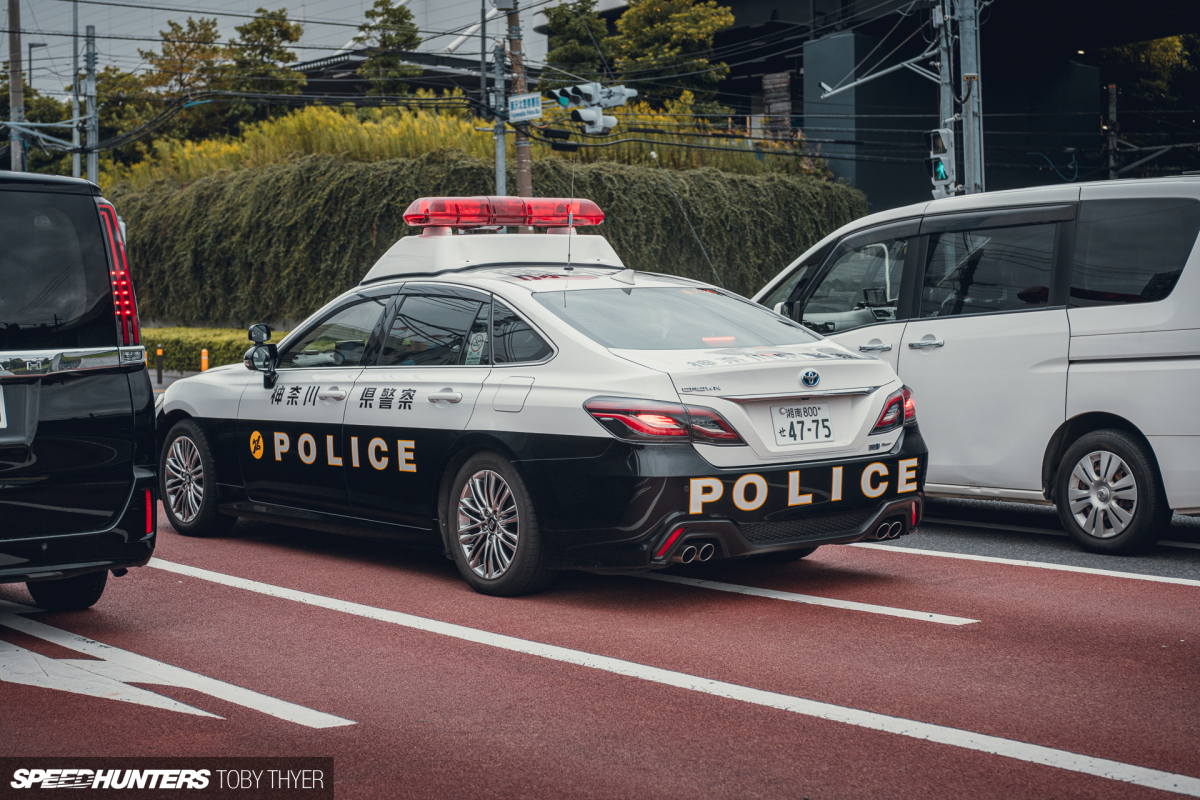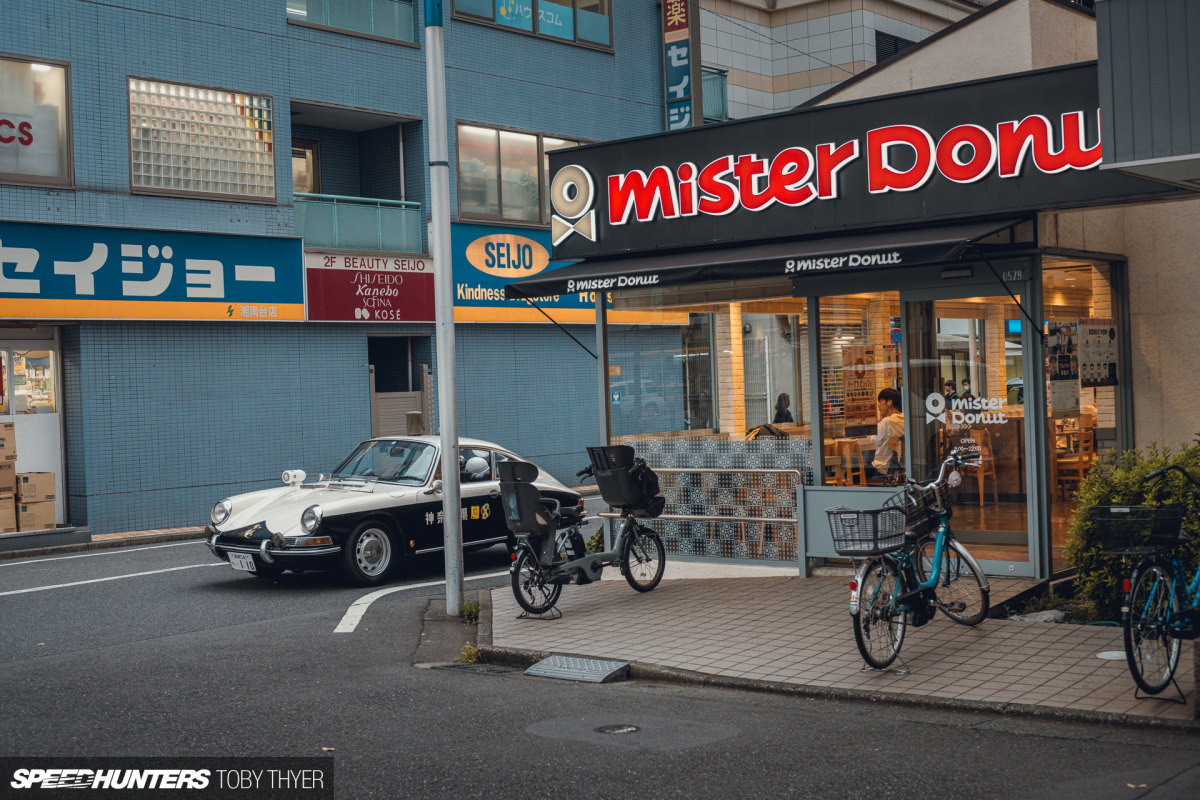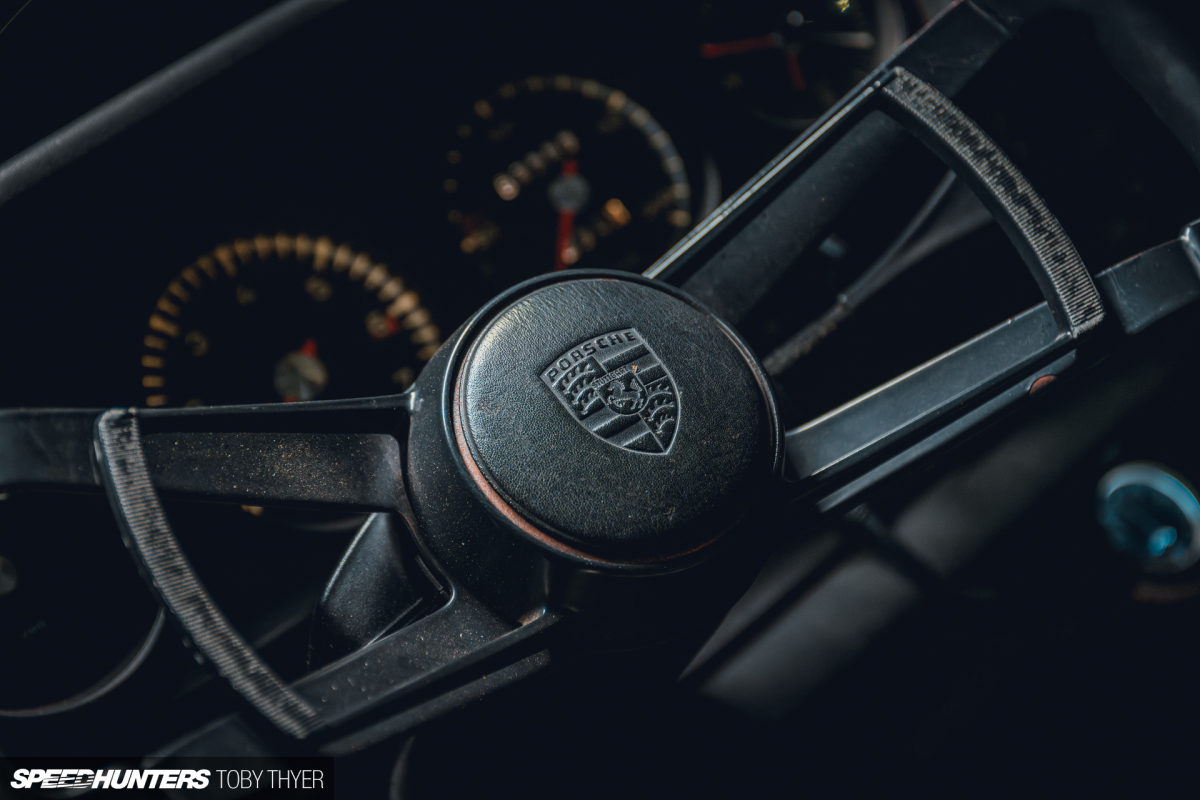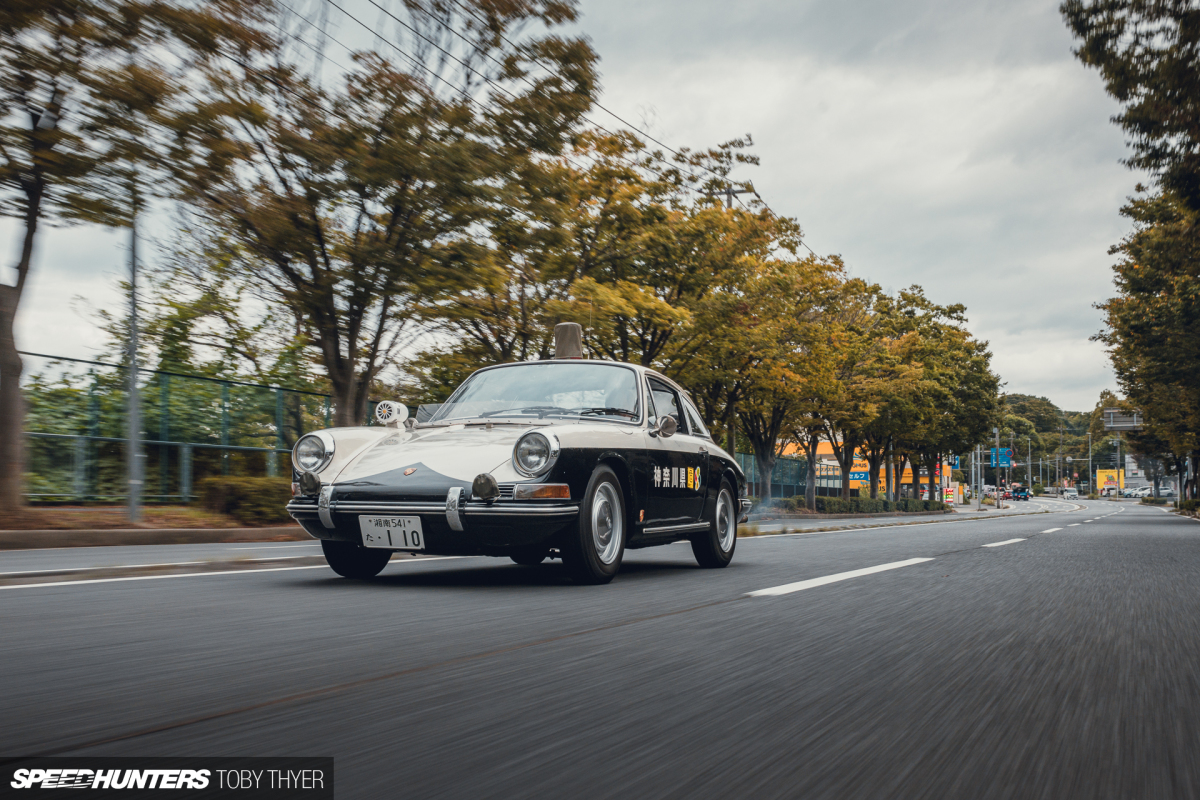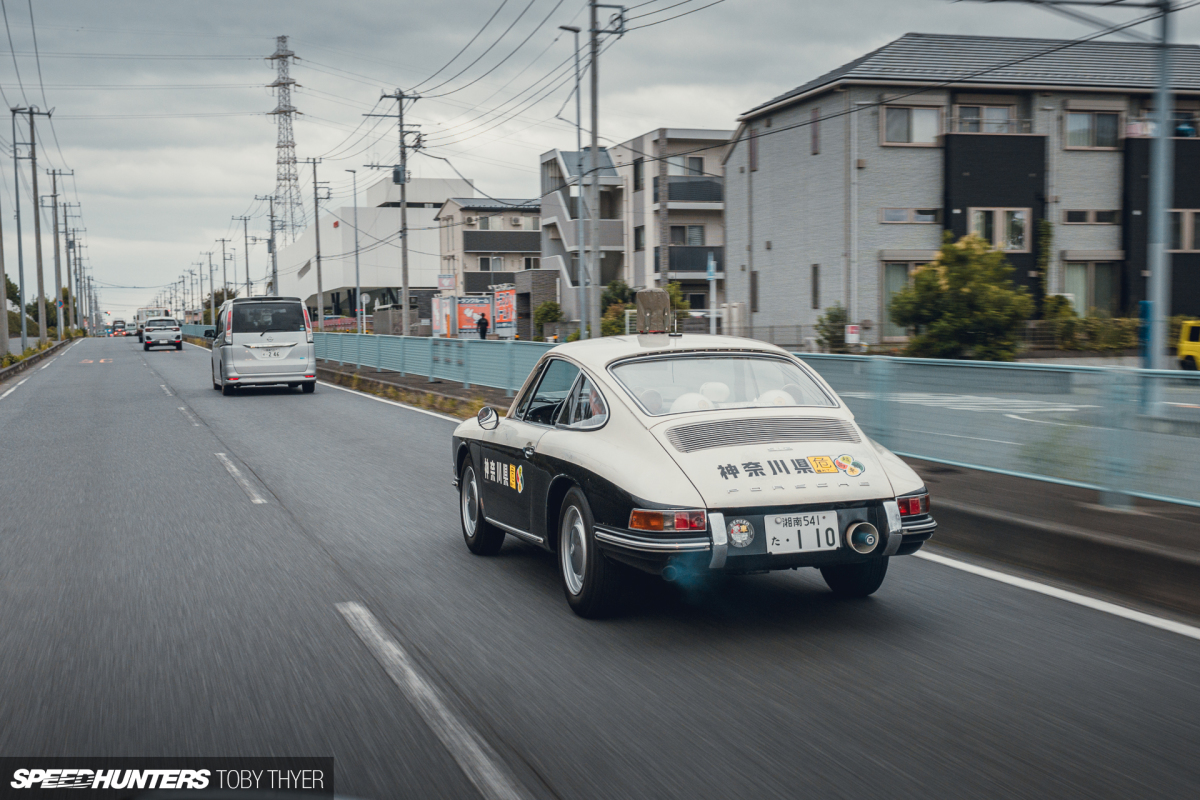Expressways, motorways, highways, or autobahns – no matter you name them, all of them result in journey.
These roads join cities, carve by way of landscapes, and supply drivers the liberty to journey. However wherever there’s an important street, there’s prone to be a patrol automobile silently maintaining order. Between 1968 and 1974, Japan’s expressways had been policed by one of many coolest: the Porsche 912. I caught up with Takahiro-san, the proprietor of Japan’s final surviving Porsche patrol automobile, to listen to its story.


However earlier than we get into that, let’s take a second to understand these roads. Highways and expressways do greater than alleviate inner-city congestion – in addition they present entry to a few of the most gorgeous corners of the world. From the Atlantic Ocean Highway in Norway to Italy’s Stelvio Move, Tianmen Mountain Highway in China, and Combe Laval in France, these routes don’t simply present gorgeous views, they’re additionally extremely engineered.

Japan, nonetheless, is a distinct problem. With 73 per cent of its land coated by mountains, you’d suppose lengthy, straight stretches of motorway can be a uncommon commodity. But, Japan’s civil engineering is nothing in need of miraculous. Expressways right here appear to defy nature, reducing by way of valleys, tunnelling by way of mountainsides, and even burrowing below Tokyo Bay. They are surely excellent.


However, like a lot of Europe, Japan requires tolls to take care of this community, and it’s clear the place the cash goes. The roads are clean, well-maintained, and, for essentially the most half, free-flowing – making them irresistible to drivers in any respect hours…

In 1998, considered one of Japan’s most infamous drivers, Kazuhiko ‘Smoky’ Nagata of Prime Secret, hit 194mph (312km/h) on the UK’s A1 motorway earlier than being apprehended by the police. Had Nagata-san been on the German autobahn, he may need damaged the 200mph barrier. If any nation may belief its drivers to take duty like Germany, it could be Japan, the place the driving tradition is considered one of warning and respect for the foundations. However in the end, the one strategy to be 100 per cent positive that order is maintained is to implement a velocity restrict. And for that, you want patrol vehicles on the expressways.

Japan’s first expressway opened in 1963, connecting Nagoya and Kobe. Within the following decade, as Japan’s financial system boomed and cities grew, the community of expressways expanded quickly. By 1964, the primary stretch in Tokyo linked Haneda Airport to the town centre – essential infrastructure forward of the Tokyo Olympics. The Tomei Expressway, connecting Tokyo and Nagoya, opened in 1968 as one of many primary arterial routes for journey out and in of the metropolis.


With the rise of those high-speed roads got here a brand new problem for legislation enforcement. To patrol them, Japan turned to a car with expertise in visitors management on the German autobahn: the Porsche 912.
Imported by MIZWA (like all Porsches of the time), 4 air-cooled 1.6L flat-four 912s had been chosen for obligation on the main expressways. Takahiro-san’s 912 was stationed on the Tomei Expressway on the western facet of Tokyo and into Kanagawa Prefecture.

Why the 912, and never the extra highly effective 911? Easy: reliability and gas financial system. The 912’s Sort 616/36 push-rod engine, taken from the 356, supplied higher vary and was simpler to take care of than the 911’s 2.0L flat-six.
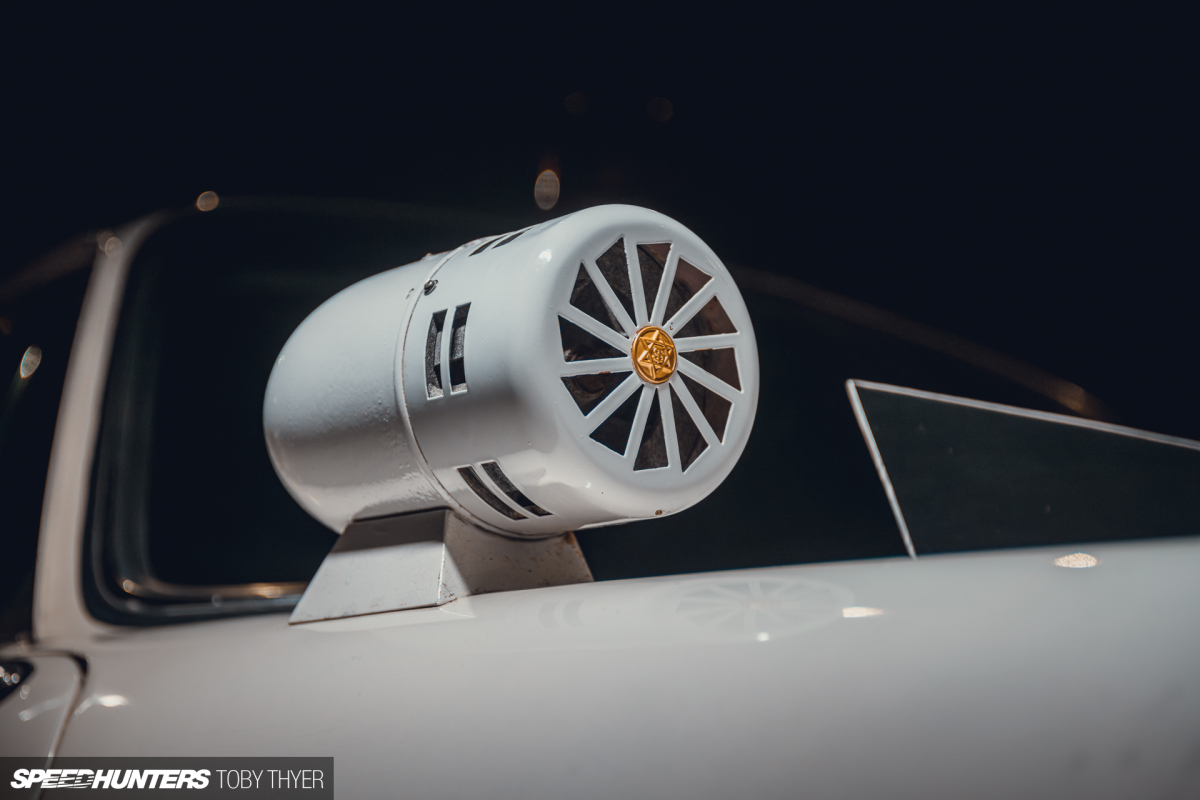
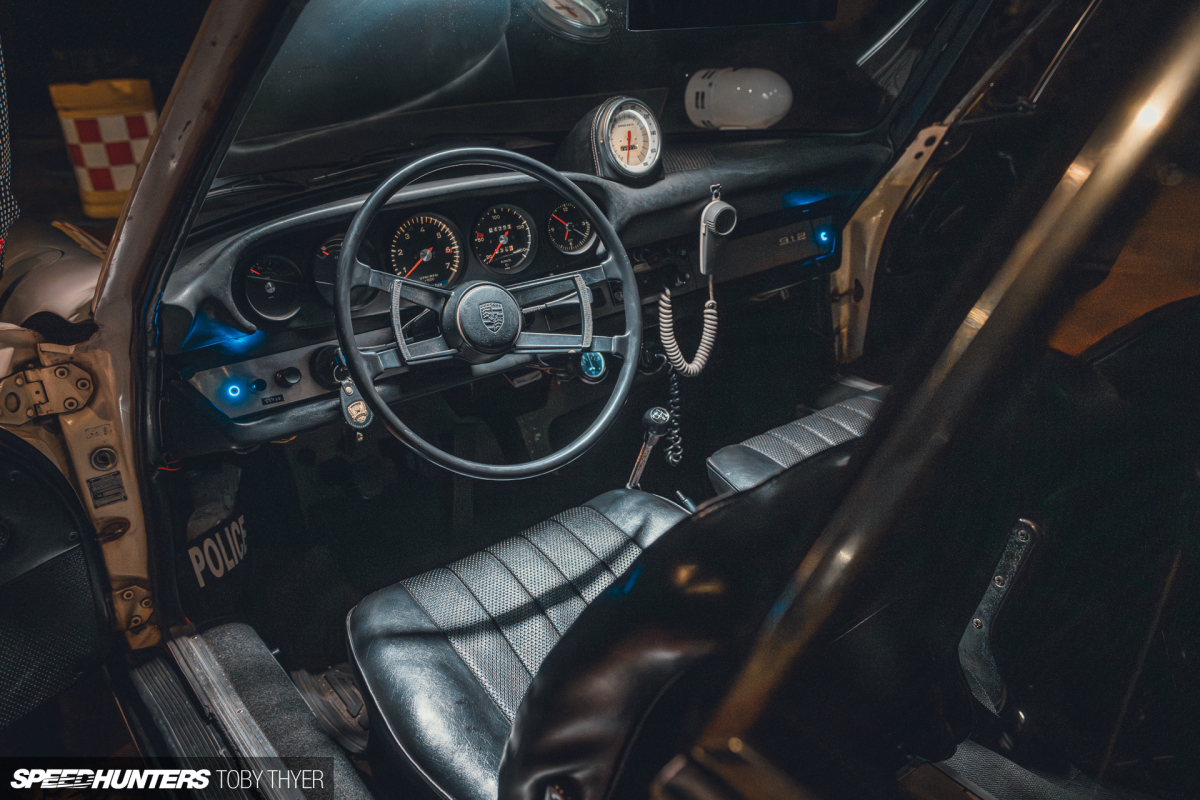
These police vehicles had been mechanically customary, save for the additions of sirens, lights, a magnetic velocity clock, a radio, and a phone.


The Kanagawa 912 featured a police badge on its nostril – a transfer Stuttgart wasn’t thrilled about, and one thing later rectified – which is why the automobile additionally carries Porsche decals on its entrance fenders.

Takahiro-san’s automobile is the final of its type and, so far as we all know, the one one nonetheless patrolling – unofficially – the Tomei Expressway in Kanagawa prefecture. In its six years of precise service, it clocked up 155,943km (96,800mi) on its odometer and made a formidable high-speed arrest, catching a suspect travelling at 178km/h (111mph).


However by the early Nineteen Seventies, the 912’s time was operating out. Components had been scarce, as had been technicians to match them, and vehicles they had been meant to catch had been turning into quicker. Then, in 1973, as a closing nail within the 912’s coffin, the worldwide oil disaster took its toll. So, in 1974, the Japanese police upgraded their fleet with home fashions that included the first-generation Nissan Silvia, Cedric, and even the Fairlady 240ZG, together with the Mazda Cosmo and Luce.

As a substitute of being scrapped, the decommissioned 912s had been despatched to varied police stations to be displayed for public admiration. For the subsequent 25 years, schoolchildren visited them on subject journeys, marvelling at their once-heroic standing. Finally although, finances cuts made scrapping them extra reasonably priced. However Takahiro-san wasn’t about to let the historical past of Japan’s 912 patrol vehicles fade away.

After negotiating for six months with a scrapyard, he managed to rescue one of many 912s. Unable to register the automobile in Japan, Takahiro-san shipped it to the US, received it registered there, after which despatched it again to Japan, the place he may legally re-register it. Immediately, it stands as a residing piece of historical past: the final surviving Porsche 912 police automobile in Japan, as soon as tasked with sustaining order on the nation’s highways.
Toby Thyer
Instagram _tobinsta_
tobythyer.co.uk




